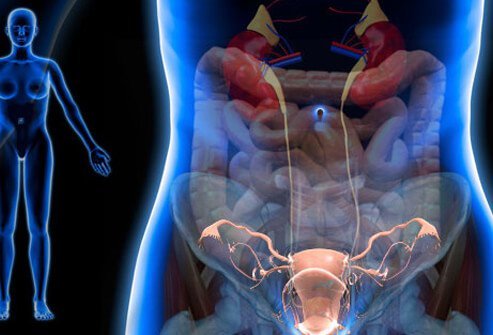
Hysterectomy is associated with long-term health issues. Learn about what happens to your body after a hysterectomy and how you can live a normal life with the right precautions
Hysterectomy can put you at greater risk of health problems. However, you can live a healthy life after a hysterectomy if you take steps to eat a nutritious diet, exercise regularly, and manage stress.
What happens to your body after hysterectomy?
Hysterectomy is a surgical procedure that involves the removal of the uterus. In some cases, it may be accompanied by oophorectomy in which one or both ovaries are removed.
Due to the change in hormonal levels caused by the surgery, women may experience symptoms of low estrogen levels, such as:

How can you overcome the side effects of hysterectomy?
After a hysterectomy, it is important to focus on good nutrition. Try to eat a diet rich in the following:
- Fruits and vegetables. Fruits and vegetables that are red, orange, yellow, and deep green are abundant with antioxidants and fiber, which help improve immunity and build your defense against diseases.
- Whole grains. Whole grains, such as oatmeal, brown rice, and whole wheat pasta are rich in vitamin B and fiber which can improve your overall health.
- Lean proteins and good fats. Lean protein from skinless chicken, fatty fish, and vegetable protein from sprouted legumes should be a part of your daily diet.
- Healthy fats. Avoid trans and saturated fats found in butter, margarine, fried foods, and pastries. Use vegetable oils, such as olive and peanut oils, which are considered healthy fats, and eat plenty of nuts and seeds.
- Boost your calcium intake. For stronger bones, aim to get at least 1,200 mg of calcium daily, along with vitamin D. You can get them from low-fat dairy, yogurt, calcium-fortified soy milk, firm tofu, and fish with edible bones, such as sardines or salmon.
Since hysterectomy makes you go experience symptoms similar to menopause, it is also important to manage your stress levels:
- Exercise regularly and stay active
- Practice meditation, yoga, or deep breathing exercises
- Indulge in aromatherapy
- Take up a hobby you enjoy
- Engage in relaxing activities such as listening to music or taking warm baths

SLIDESHOW
Pelvic Pain: What’s Causing Your Pelvic Pain? See Slideshow
Medically Reviewed on 4/28/2022
References
Parker WH, Jacoby V, Shoupe D, Rocca W. Effect of bilateral oophorectomy on women’s long-term health. Women’s Health. 2009 Sep;5(5):565-76. https://www.ncbi.nlm.nih.gov/pmc/articles/PMC2716666/
Faubion SS, Kuhle CL, Shuster LT, Rocca WA. Long-term health consequences of premature or early menopause and considerations for management. Climacteric. 2015;18(4):483-91. https://pubmed.ncbi.nlm.nih.gov/25845383/